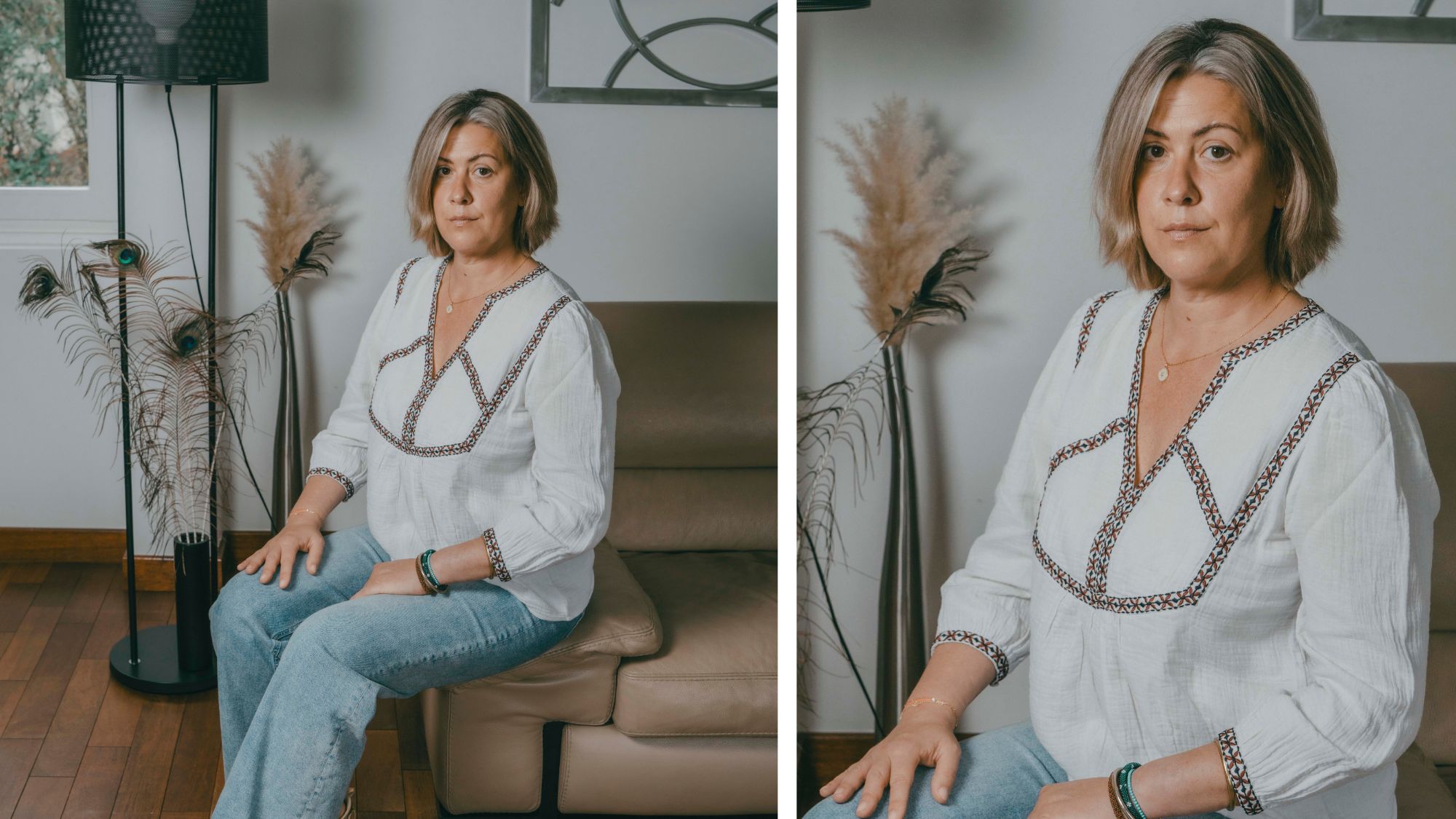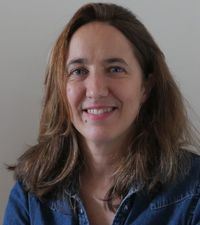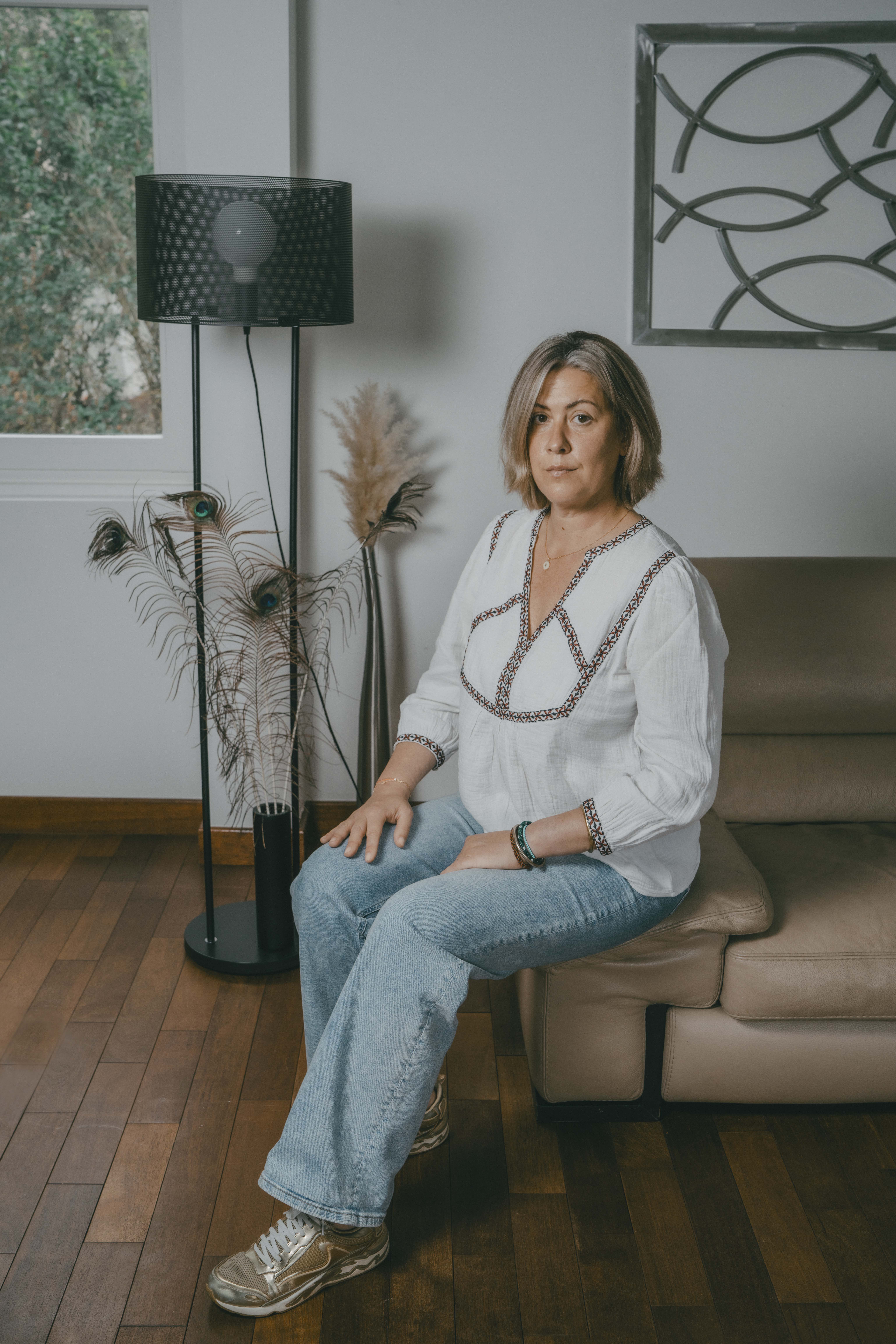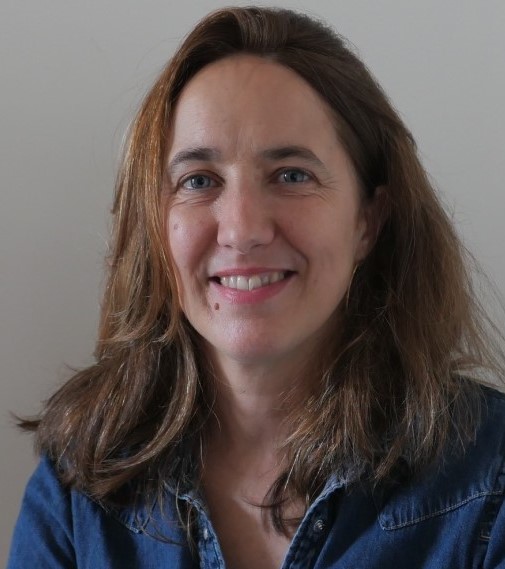The trial of Dominique Pélicot and his daughter’s fight for justice
Caroline Darian, daughter of Gisèle Pélicot and Dominique Pélicot—one of France’s worst sex offenders—is fighting against the use of drugs to perpetrate sexual assaults


Mischa Anouk Smith
At the end of last year, Dominique Pélicot—one of France’s worst sex offenders—was found guilty of drugging his ex-wife, Gisèle Pélicot, raping her and inviting strangers he sought out online to their home to abuse her.
Now that Dominique Pélicot has been imprisoned, his daughter Caroline Darian is left with a haunting question: "Did he do something to me?"
As Darian's memoir: I'll Never Call Him Dad Again goes on sale this week, we revisit this exclusive conversation with Darian with Marie Claire France.
"Insomnia and panic attacks are once again dictating the rhythm of Caroline Darian's days and nights as the date of the trial approaches. From September 2nd to December 20th, her father, *Dominique Pélicot, will be judged by the Vaucluse Court of Assizes for drugging her mother for sexual purposes.
For at least eight years, from 2013 to 2020, Dominique slipped Temesta into his wife’s meals to deliver her unconscious to men he found online. The investigation counted around one hundred rapes in the marital bed and over 80 attackers. Thirty have not been identified, but fifty will appear alongside the main defendant. Ranging in age from 22 to 71, from all social classes, "a sordid sample of the population," as Caroline Darian puts it grimly.
Did he do something to me?
"It will be an extraordinary trial for an extraordinary story. I don’t know what to expect." When reality becomes unbearable, this 46-year-old woman rides her mountain bike "full throttle" in the forests of the Parisian suburb where she lives with her husband and their 10-year-old son. Framed in her living room, a photo of her beloved young son in action on a rugby field is a reminder that the monstrous acts committed by his grandfather didn’t stop her from moving forward. "The trial is going to be intense. I’ll be going with my mother, just the two of us, and we’ll try not to fall apart," she says while offering some chocolate.

Caroline Darian by Louisa Ben
The Battle
She speaks directly, her gaze locked. She read the entire legal file in the same way and says she "wanted to see the images of the abuse" captured in videos her father made of her mother, read his vulgar comments, and... examined the two photos of herself that the police found. The photos were taken at night in two different beds, wearing the same pair of underwear, which Caroline Darian doesn’t recognise. "These photos are not up for debate: I wasn’t sleeping." This means her sleep was also artificially induced. Since then, a terrible question has tormented her: "Did he do something to me?" She will ask her father directly in court. She adds that what doesn’t destroy you strengthens you forever, even if she has "already fallen apart," as she puts it.
Celebrity news, beauty, fashion advice, and fascinating features, delivered straight to your inbox!
In November 2020, three days after the police in Carpentras revealed the dark side of her "sperm donor," as she now calls him, she was briefly hospitalized in psychiatry. To cope, at first, she took notes. This journal became the foundation for her book, Et j'ai cessé de t'appeler papa (I'll Never Call Him Dad Again). Quickly, she wanted to give a "broader movement" to this family catastrophe, "go beyond the personal dimension": "I thought it must be happening to others too." From victim to whistleblower on chemical submission, Caroline Darian has turned her experience into a collective battle.
Healthcare professionals are poorly informed about the effects of this practice, which often flies under the radar. Gisèle Pélicot, now 72, spent years in medical limbo. Alzheimer’s disease, tumours, or depression were considered as explanations for her mysterious absences and fatigue. The legal process for victims of chemical submission is still being built: filing a complaint, preserving evidence—urine analysis, and blood tests. It’s important to know that sequential hair analysis can detect the presence of chemicals many weeks after they are administered.
A communications professional at AXA, Caroline Darian has channelled her professional efficiency into her advocacy, founding the association M’endors pas ("I Don’t Fall Asleep"). The media coverage of her father’s trial will help raise public awareness about chemical submission. The illegal administration of psychoactive substances without the victim's knowledge is usually referred to in limited terms as the so-called "date rape drug", which collectively, is often imagined as something slipped into a drink at a party. But, often—as illustrated by Dominique Pélicot's method, the assault happens at home; perpetrators use medicines available in family medicine cabinets—sleeping pills, antihistamines, hypnotics.
A Personal Fight That Became A Collective Struggle
From the family drama that shattered her life in 2020, Caroline Darian has made it a collective fight. This is how she survives, "otherwise, I’d collapse." "Action keeps me in a life-saving energy," she says. She has knocked on every door—scientific, associative, and friendly—seeking help for her whistleblowing mission. "Caroline has this impressive ability to get everyone on board this boat that she never chose to get on, and now everyone is rowing. She alone could turn this hell into a fight," sums up one of her friends, Arielle Schwab, deputy CEO of Havas Paris, who has supported the campaign. Completely transparent, Caroline Darian admits that her go-getter attitude hides "a kind of fragility I try to mask," but that the description [her friend shared] fits her well. Her mother also told her that as a teenager, Caroline was like a "tank" once she made a decision. For example, when, at 15, she fibbed her way into taking a trip from the Paris region to Montpellier to visit a boyfriend. "The life of the party," this sensitive soul racked up detentions in her third year, often skipped class, and ended up repeating the year.
I wanted to go beyond the personal dimension. I thought, this must be happening to others.
"Caro has always been very committed, has a lot of humour, and is very comfortable with public speaking—perfect for making speeches," says Inga, one of her four close friends since middle school. While her friends are impressed by her combativeness, they also fear she might forget herself in the process.
In May, Caroline Darian celebrated: "My ultimate goal was to make chemical submission a political issue to improve the care of victims, and we’ve made it!" That afternoon, with subtle gold eye makeup, having cleared her work schedule, she was ready: "Finally, we’re moving forward, concretely." In a meeting room at the National Assembly, the government mission on chemical submission, led by Sandrine Josso, a deputy who was drugged by one of her colleagues last November, and Senator Véronique Guillotin, began. Victims, both women and men, testified. Alas, even before three weeks had passed, the dissolution of the National Assembly halted the work. "It’s frustrating, we fought hard to get this mission," says Caroline Darian, disheartened.
A Struggle Against Political Obstacles
She is, unfortunately, no stranger to political setbacks. In July 2023, she managed to secure a meeting with the then-Minister of Health, François Braun... only for him to be replaced two weeks later in a cabinet reshuffle. Everything had to be started over. On November 20, her mother called: "Turn on the TV right now, watch C à Vous! Sandrine Josso can’t work without you!" Still traumatised, the deputy from Loire-Atlantique was recounting how a close friend, a senator, slipped ecstasy into her drink during a party at his house. The two women met shortly after. "Sandrine Josso has the political ability I don’t have," Caroline Darian says with joy. She is the political ally Caroline needs to move her cause forward.
"Caroline taught me so much, she was years ahead in understanding this plague, and she has a natural generosity," says the elected official, now the godmother of the M'endors pas association. The continuation of the mission now depends on a government decision. Caroline Darian is growing impatient: "The team is on high alert, we can’t stop like this—the victims’ lives don’t stop, there’s so much more to do!""
*Dominique Pélicot is also under investigation for the assault of a 19-year-old woman in 1999, as well as the murder and rape of Sophie Narme in 1991.
This article was originally published on Marie Claire France

Laure Marchand is a French freelance journalist specialising in social issues with a focus on justice.
- Mischa Anouk SmithNews and Features Editor